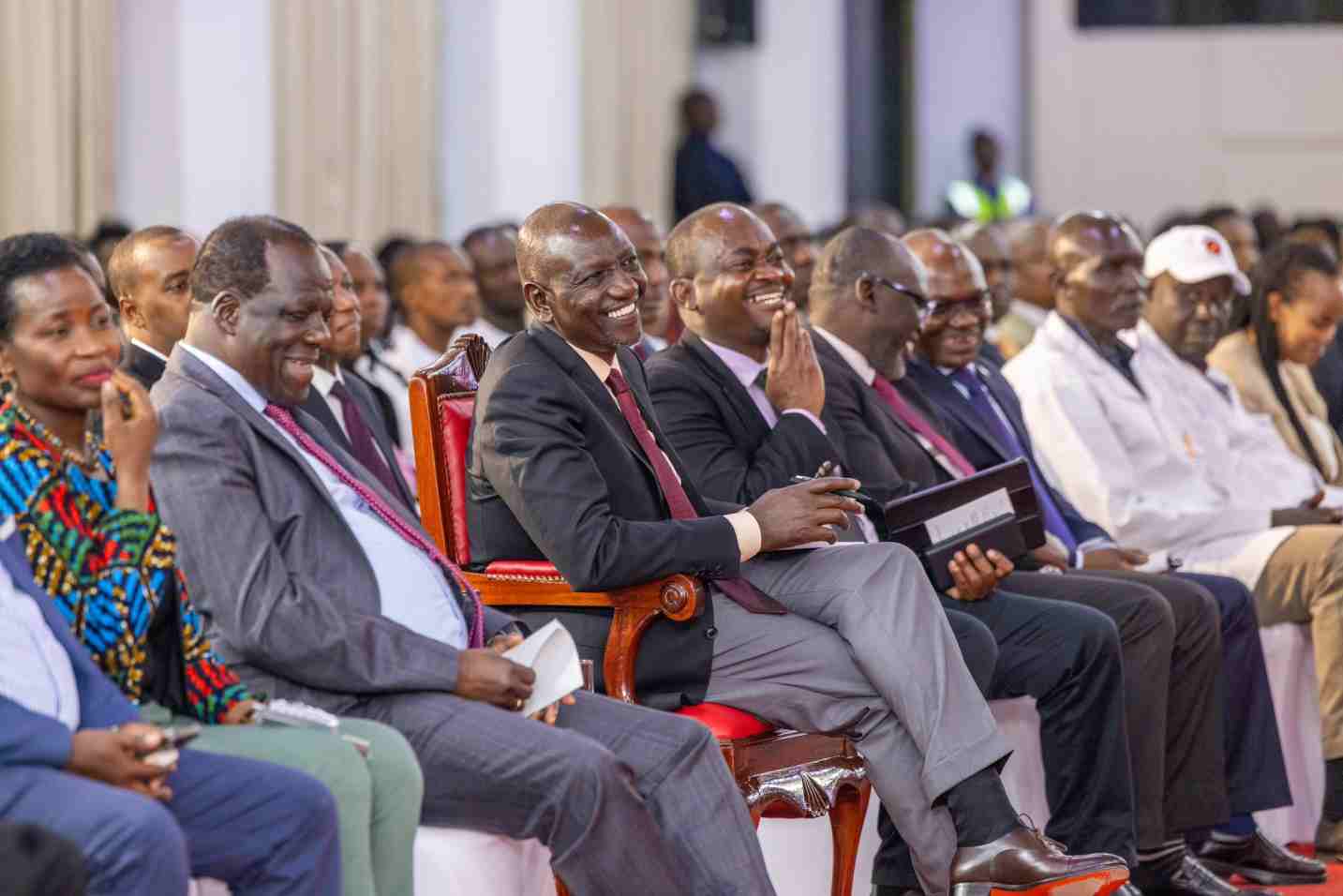President William Ruto has broken his silence on the deadly June 25 anti-government protests, terming them “economic sabotage” and directing security agencies to arrest and prosecute all those behind the violence and destruction witnessed across the country.
Speaking on Friday during the International MSMEs Day celebrations, Ruto said what took place during the Gen Z-led demonstrations was not peaceful protest, but a calculated attempt to destabilise the country’s economy by targeting traders and small businesses.
“Even as we celebrate our MSMEs today, we must confront a painful reality. I want to express my deepest regret and condemnation for the loss of lives, looting, wanton destruction, and loss of valuable property belonging to our traders who were deliberately targeted by criminal elements during the protests this week,” Ruto said.
He emphasized that while the Constitution protects the right to protest, what was witnessed during the demonstrations was a direct attack on that freedom.
“Let me be clear: the right to peaceful protest is protected by our Constitution. We respect and uphold that right. But what we witnessed was not peaceful protests. It was calculated chaos. It was destruction. It was economic sabotage; let’s call it what it is, that is what it was,” the President said.
Ruto detailed the extent of the destruction, citing looted shops, burnt businesses, and vandalised market stalls and warehouses.
“Shops were looted. Businesses, some built over decades, were burned to the ground. Market stalls destroyed. Warehouses ransacked. Investments worth billions of shillings were wiped out in hours,” he said.
“The livelihoods of hardworking Kenyans have been shattered by deliberate acts of lawlessness. It is anarchy dressed in freedom colours. This is disorder disguised as democracy,” he added.
Ruto questioned whether the country was moving in the right direction, urging Kenyans to reflect on the meaning of freedom.
“Is this the Kenya we want? Do we want to build by day, and destroy by night? Do we uphold the law, only to exploit its protections to sow chaos and cripple our economy? Is this what freedom means? Is it freedom to burn what others have built? Those elements doing this are not fighting for freedom; they are attacking freedom,” he said.
He directed the Inspector-General of Police and all relevant security agencies to move quickly and ensure justice is served.
“I expect the Inspector-General of Police and all relevant security agencies to conduct immediate, thorough, and speedy investigations. The perpetrators of this violence, looting, and destruction must be identified, unmasked, and prosecuted to the fullest extent of the law, swiftly and decisively,” he said.
The protests turned deadly, with Amnesty International Kenya director Irungu Houghton confirming that 16 people had lost their lives.
Rights group Vocal Africa, which has been assisting families at a Nairobi morgue, said at least four of the bodies had gunshot wounds.
“All of them had signs of gunshots, so we suspect they all died of gunshot wounds,” said Hussein Khalid, the organisation’s head.
“We condemn this excessive use of force. We believe that the police could have handled themselves with restraint. You come out to protest police killings, and they kill even more,” he added.
A coalition of rights groups said over 400 people were wounded, with 83 in hospital with serious injuries. Protests were recorded in at least 23 counties.
Interior Cabinet Secretary Kipchumba Murkomen also weighed in, saying the government would pursue individuals who hijacked the demonstrations for criminal activity.
Speaking after inspecting damaged properties, Murkomen claimed the chaos was not spontaneous but carefully coordinated and financed.
“What happened yesterday was not random. It was deliberate, it was coordinated, it was funded. It was premeditated and politically funded,” Murkomen said.
He revealed that 88 police vehicles, 27 government vehicles, and 65 civilian cars were damaged during the unrest, and in Dagoreti, five firearms were stolen from a police station.

